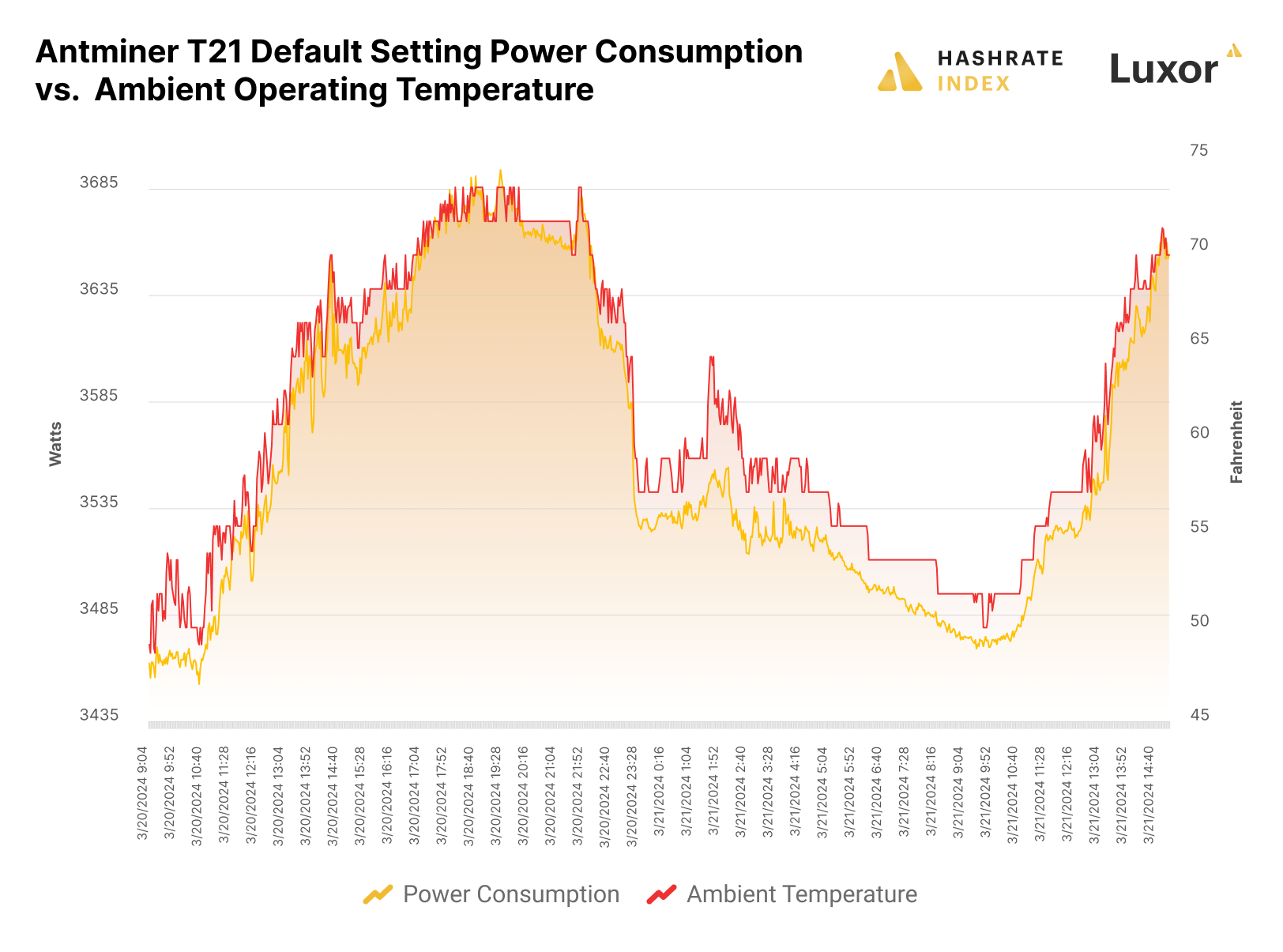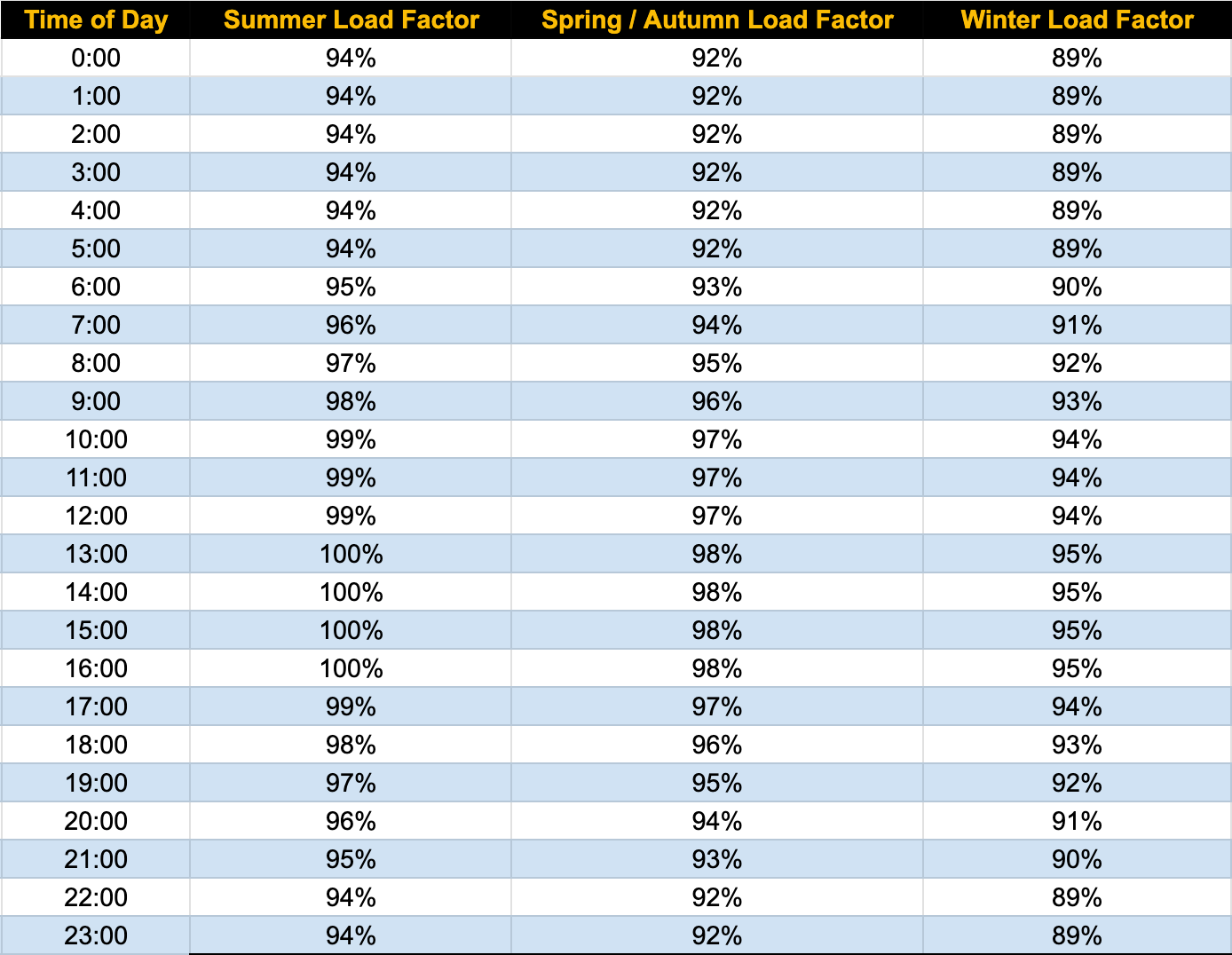
How LuxOS Can Maximize Your ASIC Miner’s Power Consumption and Profit
Here's how Luxor's LuxOS Antminer firmware can help miners boost their Bitcoin mining revenue.
ASIC miners are extremely sensitive to temperature fluctuations. Temperature is strongly correlated with power consumption, so increases in ambient temperature lead to increases in power consumption, which reduces machine efficiency. Conversely, decreases in temperature lead to decreases in power consumption, resulting in improvements to machine efficiency.
As temperatures fluctuate throughout the day and across seasons, miners often find themselves with varying levels of available power. During cooler periods, miners may have excess capacity, while in warmer conditions, power consumption rises, potentially limiting machine output.

Miners are consistently seeking ways to optimize their operations to maximize revenue. Periods of cool weather present a huge opportunity for miners to overclock their units to make use of excess power, as the cooler temperatures provide optimal operating conditions to increase power consumption without overheating their ASIC miners.
While developing LuxOS, we dedicated many hours to understand how temperature influences power consumption. We observed that power consumption can vary in excess of 10% throughout the day. Put differently, this means that 10% of a miner’s total power capacity will likely go unused when ambient temperature hits its lowest point of the day. For miners with base load power purchasing agreements (i.e., PPAs where the miner pays for a fixed amount of power at a fixed rate), this unused power is detrimental to their profits because they are still paying for it but not utilizing it to generate revenue.
Maximizing Mining Revenue With LuxOS
To put into perspective how load balancing can maximize mining profit, we put together a hypothetical mining operation using the following assumptions:
- Total Capacity: 100 MW (base load PPA)
- Cost per MWh: $50 (fixed rate)
- Fleet Efficiency: 29.5 J/TH
- Hashprice: $100/PH/day
- BTC Price: $70,000
Additionally, we computed the hypothetical operation’s load factor as a percentage of its total capacity throughout the day and seasons. To be conservative, the maximum power savings due to decreased temperatures was set to 10.7% at night during winter season. The "Load Factor" columns represent the percentage of the total base load that the miner is consuming at a given point in time.

The example results in the hypothetical miner underutilizing 50,370 MW of power throughout the year – power that the miner still pays for according to its fixed PPA. The miner underutilizes this power mostly during the winter, followed by spring and autumn seasons. The summer months result in the least amount of underutilized power, as temperatures are their highest of the year during this season.
Instead of letting this power go to waste, this miner could employ LuxOS firmware to overclock their ASICs during times of lower power draw to increase their fleet's power consumption and maximize profits.
Assuming an average efficiency of 29.5 J/TH, 50,370 MW translates to 195 PH/s worth of potential hashrate if the miner is running their operations without interruption and optimally overclocking with LuxOS. This example assumes that, during high temperature environments, there’s little-to-no room for overclocking, while during cooler periods there’s ample room to increase load. This 100 MW facility would operate over 3 EH/s worth of SHA-256 compute power, so 195 PH/s would imply a 6.5% increase to their operating hashrate (and also revenue) throughout the year.
At the time of writing, Hashprice is $100/PH/s/Day. If the miner used LuxOS to overclock during periods when power would otherwise go unused, 195 PH/s would translate to $19,500 worth of revenue potential (0.2785 BTC) per day. The increased power consumption would result in $6,900 per day in additional power costs assuming a $50/MWh power rate. Thus, this miner would improve their operating margin by $12,592 per day.
If this 100 MW miner follows this strategy throughout the entire year, they would realize more than $7 million (101.63 BTC) worth of additional revenue and boost their profit margin by $4,595,907 (65.66 BTC).
Takeaways
If they are not employing after-market firmware, Bitcoin miners are leaving profits on the table. After-market Antminer firmware like LuxOS can help miners improve their operating profits and efficiency by taking advantage of cold temperatures to improve hashrate output at times when power draw is low, and they can also maximize their efficiency with automatic thermal management to adjust power draw to an optimal range when temperatures are high.
If you’re a Bitcoin miner and you want to get the most out of your hashrate, LuxOS can help you supercharge your operations. You can download LuxOS today and install it remotely by following this link.
Hashrate Index Newsletter
Join the newsletter to receive the latest updates in your inbox.








